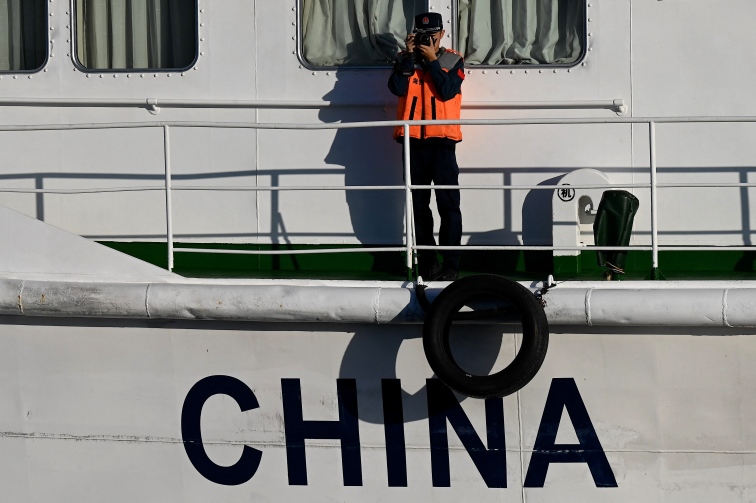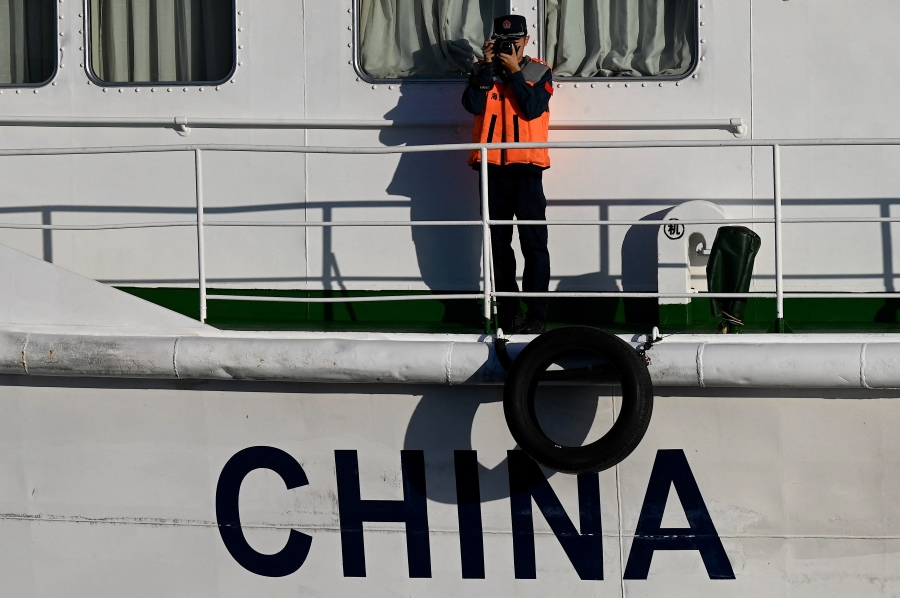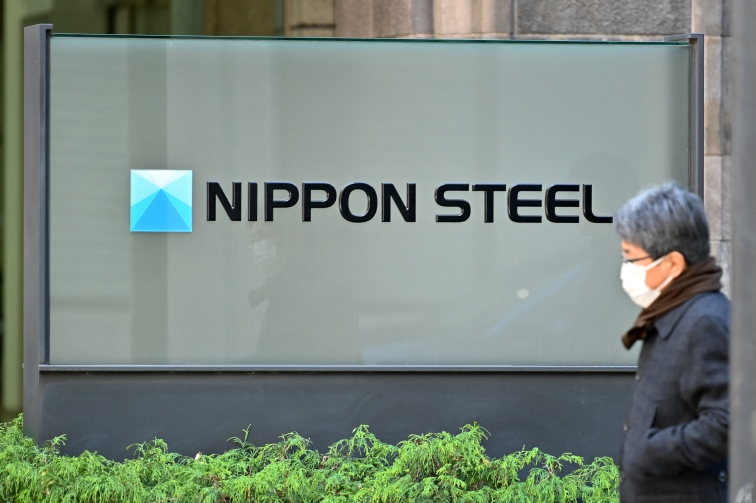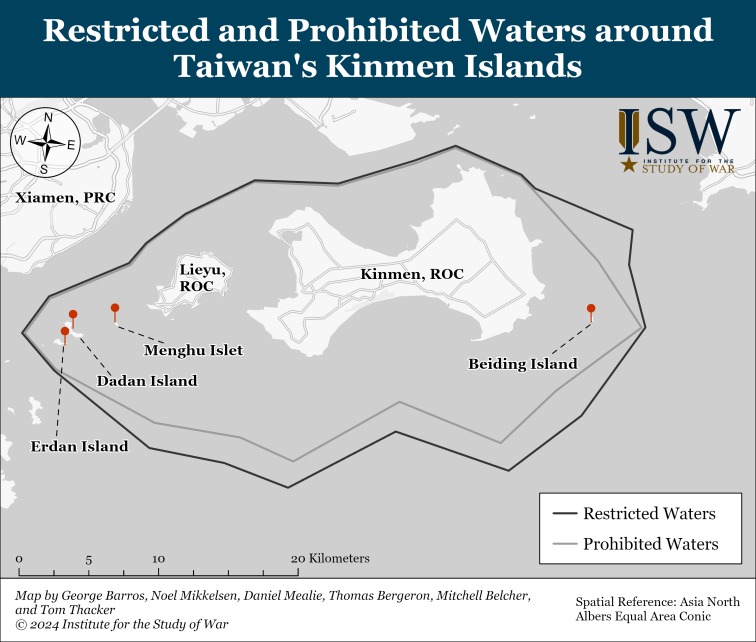
China’s recently increased maritime and aerial operations near the Philippines, Japan, and Taiwan is part of Beijing’s attempt to gauge the United States’ commitment to supporting allies in the Indo-Pacific region, say analysts. They noted the increased activity comes as Tokyo and Washington gear up for elections in the coming weeks.
“China sees an opportunity to test the United States’ commitment to the broader region. So, it is sending a signal to Washington that if they try to invest more in the Philippines and other relationships in the South China Sea, Beijing will try to complicate their security architecture and their ability to manage many issues at once,” said Stephen Nagy, a regional security expert at the International Christian University in Japan.
Chinese and Philippine coast guard vessels collided at least twice since last month near Sabina Shoal in the South China Sea. Sabina Shoal lies within the Philippines’ exclusive economic zone, or EEZ but Beijing says the partially submerged reef is part of its territory.
The latest collision happened shortly after noon on Saturday, August 31. Videos released by both China’s state broadcaster CCTV and the Philippine coast guard showed a Chinese coast guard vessel ramming into a Philippine vessel. Each side accused the other of “deliberately” causing the collision.
Meanwhile, Japan’s defense ministry says a Chinese military aircraft breached its airspace for the first time on August 26 and a Chinese survey ship intruded into Japan’s southwestern territorial waters on August 31.
Tokyo lodged formal complaints to the Chinese Embassy in Japan, describing the series of incursions as “unacceptable,” but Chinese foreign ministry spokesperson Mao Ning said during a regular press conference Monday that the Chinese survey ship’s activity was “fully lawful and legitimate.”
In addition to areas near the Philippines and Japan, China has deployed at least 172 military aircraft and 87 naval vessels to areas around Taiwan since August 26. Some experts say China’s concerted activities in the three locations are aimed at “punishing its most vocal adversaries” in the Indo-Pacific region.
“It seems that China believes it enjoys a certain amount of force overmatch and escalation dominance, so it is trying to make examples out of some countries that refuse to accept Chinese dominance in its near abroad,” Ray Powell, director of Stanford University's Gordian Knot Center for National Security Innovation, told VOA in a phone interview.
Warnings Not Enough
The United States and other democratic countries, including Japan, Australia, and those of the European Union, have issued statements to condemn China’s maritime aggression following the latest collision between Chinese and Philippine vessels near Sabina Shoal. Some experts, however, say Beijing’s persistent aggression in the South China Sea suggests these warnings are insufficient to force it to soften its stance.
“Over the last year, China has disregarded all the warnings from the United States and its allies and continues to do what they have been doing in the South China Sea,” Collin Koh, a maritime security expert at Singapore's S. Rajaratnam School of International Studies, told VOA in a phone interview.
Koh and Nagy both say the U.S. and its allies need to roll out more forceful measures to counter China’s persistent maritime aggression across the Indo-Pacific. These, they say, include conducting more transits through regional waters, increasing the presence of naval vessels in the region and initiating a consultation of the mutual defense treaty between the U.S. and the Philippines.
“More countries need to conduct international transits through the Taiwan Strait and the South China Sea, regularize the presence of their naval vessels in the Indo-Pacific region, increase the frequency of joint training between Southeast Asian countries and other allies, and consider imposing sanctions on China,” Nagy told VOA by phone.
According to reports, two German warships, the frigate Baden-Württemberg and its supply ship Frankfurt am Main, are waiting for orders regarding possible passage through the Taiwan Strait during their transit from South Korea to the Philippines.
Since the start of 2024, U.S. naval vessels have conducted at least four transits through international waters in the Taiwan Strait, the 180-kilometer-wide body of water between Taiwan and China’s southern Fujian Province. Naval vessels from Canada and the Netherlands have transited through the strait this year as well.
In recent weeks, the U.S. has reiterated its willingness to support the Philippines’ resupply missions to the disputed reefs in the South China Sea while deploying extremely long-range air-to-air missiles to the Indo-Pacific, which experts say could erase China’s advantage in aerial reach.
While China is trying to test Washington’s resolve in the Indo-Pacific region and increase its military activities in the western Pacific, some analysts say it is not clear how long Beijing can sustain the intensity of its maritime operations.
“[While China] can still afford to put more money into defense and press its maritime claims, how much they can do so in the future remains an open question as their economy matures and their demographics provide more of a drain on growth,” Ian Chong, a political scientist at National University of Singapore, told VOA in a written response.
Last week, the Reuters news agency reported that China spent $15 billion in 2023, or 7% of its defense budget, on military activities in the waters off its coast in the north and in the Taiwan Strait, the South China Sea, and the western Pacific Ocean. The data was based on previously unpublished internal research conducted by Taiwan’s armed forces, the report said.
With Japan’s ruling Liberal Democratic Party set to elect its new leader later this month and the U.S. presidential election entering its final weeks, Powell at Stanford expects China to maintain the same level of maritime aggression in the Indo-Pacific in the coming months.
“If China sees ways for them to advance their objectives when democratic governments are focused on elections, they do like to take advantage of that,” he told VOA, adding that the international community should closely monitor Beijing’s activities in the Indo-Pacific region in the next few months.










News magazine bootstrap themes!
I like this themes, fast loading and look profesional
Thank you Carlos!
You're welcome!
Please support me with give positive rating!
Yes Sure!